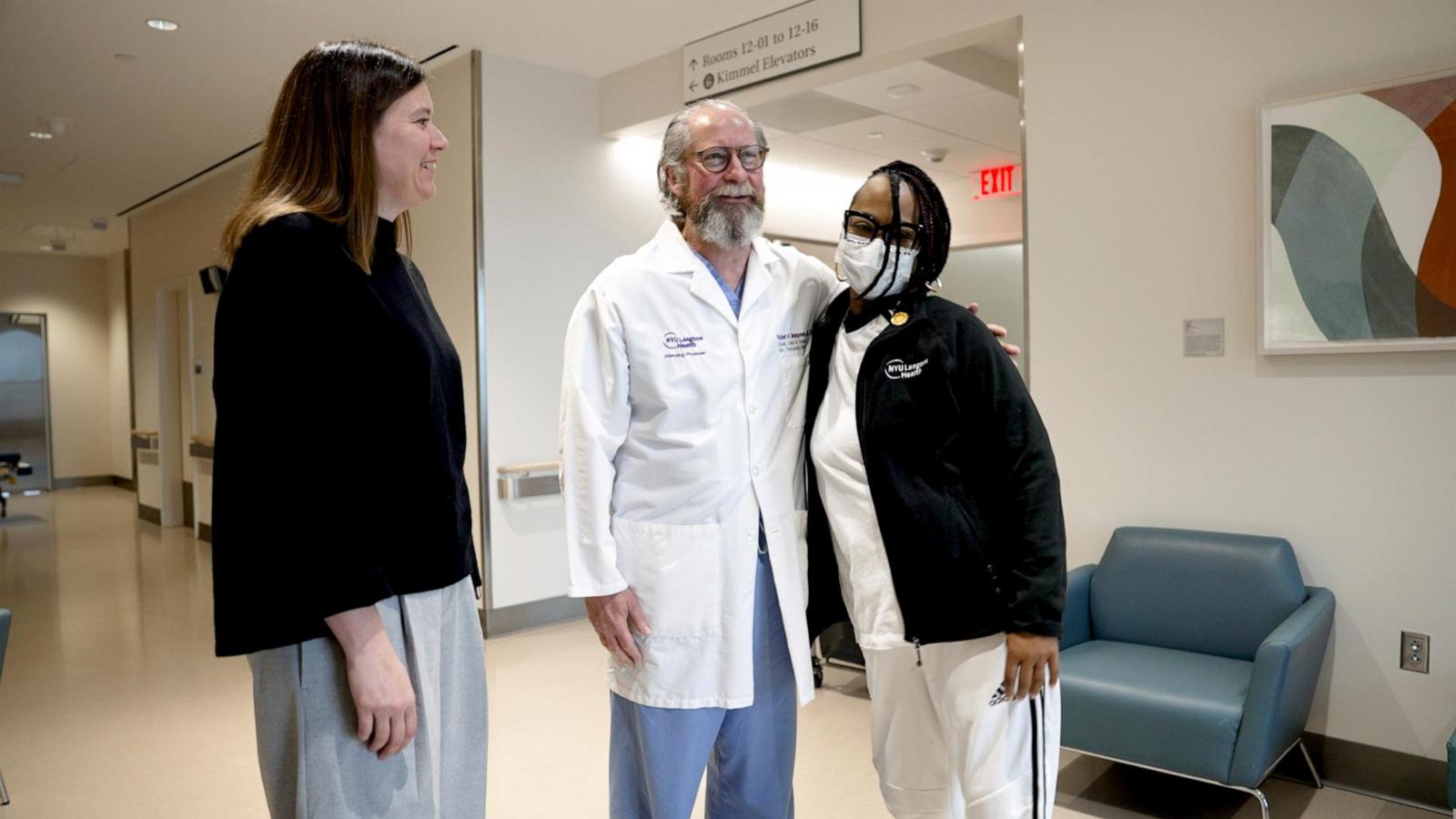Pig Kidney Transplant: A Groundbreaking Success Story
Imagine a life on dialysis, a relentless cycle of treatments stealing precious time and energy. Then, picture a glimmer of hope, a chance for a healthier future with a groundbreaking solution—a pig kidney transplant. This is the incredible story of Towana Looney, a woman whose life has been transformed by this pioneering medical procedure. It’s a revolutionary moment for medical science, signaling a potentially limitless supply of organs for those on transplant waiting lists.
The Miracle of Xenotransplantation: A New Era for Organ Transplants
Xenotransplantation, the process of transplanting organs from one species to another, has long been the subject of both fascination and controversy. Scientists have worked tirelessly to overcome the challenges of rejection and immune incompatibility. Now, with the gene-editing of pig organs to create a closer human-like structure, they are making significant breakthroughs.
Genetically Altered Pig Organs
Towana Looney's case is not the first instance of xenotransplantation. Prior studies with gene-edited pig kidneys and hearts yielded mixed results, resulting in the death of patients within months post-transplant. However, what makes her case remarkable is the impressive recovery. This significant improvement is partially due to improved gene editing procedures used to produce more biocompatible animal organs. These organs have been altered at the genetic level to minimize rejection reactions, offering the potential to revolutionize transplantation.
Towana Looney’s Recovery
Towana, a previous kidney donor herself, faced dire circumstances due to kidney failure. The standard transplant procedure was deemed impossible due to the presence of antibodies, which created a formidable challenge. Undeterred, Towana found out about pioneering kidney research, leading her to seek a solution through the risky approach of receiving a genetically altered pig kidney.
She underwent surgery at NYU Langone Health, where the gene-edited pig kidney was successfully implanted. Remarkably, the pig kidney began functioning almost immediately, generating urine within moments of surgery. Following an 11-day stay, she returned home to continue her recovery, demonstrating a rate of recovery unseen in previous attempts.
Overcoming Obstacles: A Collaborative Effort
This success is the result of the exceptional teamwork among medical professionals and researchers. The collaboration between surgeons at the University of Alabama at Birmingham (UAB), NYU Langone Health, and scientists at Revivicor underscores the importance of a cohesive research environment that facilitates breakthrough results. Each participant performed a critical function that improved outcomes and created a successful surgical result. Dr. Jayme Locke played an invaluable role, obtaining FDA permission and pushing for Looney's inclusion in this pioneering treatment. Similarly, the team at NYU Langone Health, under the direction of Dr. Robert Montgomery, carefully carried out the experimental procedure, leading to this astonishing recovery.
FDA Approval and Future Implications
The successful transplant of a genetically modified pig kidney highlights the evolving regulatory environment in dealing with gene-edited material in a clinical trial. While the FDA has remained cautious in its approval process, Towana's exceptional response gives confidence to more widespread clinical trials, paving the way for an eventual paradigm shift for organ transplant patients. These successful treatments may eventually allow transplantation practices to take place in smaller clinical centers or regional locations, allowing access for people in underserved areas of the country and globe. These treatments, therefore, increase life expectancy and quality of life for millions suffering from chronic organ diseases and other organ conditions.
A Ray of Hope: What’s Next for Xenotransplantation?
Towana's case opens a world of possibilities. While the future isn't entirely clear-cut and some recipients did succumb to unexpected causes of death within months of surgery, it does reveal significant advancements and increased possibilities for patients seeking organ transplant therapy. With a vast number of people awaiting organ transplants and even more qualifying patients without suitable options, this represents a major shift that improves the potential access for successful transplantation surgery. Further research focusing on xenotransplantation and associated improvements could mean that pig organ donation could become the primary solution in solving the organ-donation waiting list shortage.
Expanding Access to Organ Transplants
For those patiently enduring the daily grind of dialysis, or those left off transplant wait lists, this offers a genuine ray of hope. Thousands die waiting for organs, and millions remain on long-term organ dialysis. The use of pig organ transplantation could potentially prevent thousands of unnecessary deaths and provide access to affordable organ transplant therapy for all populations, including historically underserved regions that lack affordable healthcare. Xenotransplantation is potentially a revolutionary, sustainable source of life-saving therapies for a multitude of healthcare conditions.
Continued Research and Development
The journey isn't over. While Towana's transplant is groundbreaking, research is still ongoing. This new solution holds tremendous possibilities, particularly regarding patients waiting for kidney, liver, lung, and other transplants that remain in shortage. Researchers are studying these innovative treatments and exploring several important aspects, including the possible adverse consequences associated with such therapies and investigating novel therapeutic strategies aimed at further increasing successful transplant treatment outcomes. This ongoing work can eventually produce a wider and more efficient application of genetically engineered transplants in clinical practice.
Take Away Points
- Xenotransplantation is becoming an increasingly important frontier in modern medical practice and therapeutic discovery.
- Genetic engineering of pig organs improves the biocompatibility of pig organ transplants and is resulting in increased success rates and longevity of the transplantation surgery.
- Towana Looney's recovery underscores the promising results of pig kidney transplants and improves the lives of patients needing these treatments.
- Further research and trials will continue to expand access to organ transplants and ultimately saves more lives globally.




